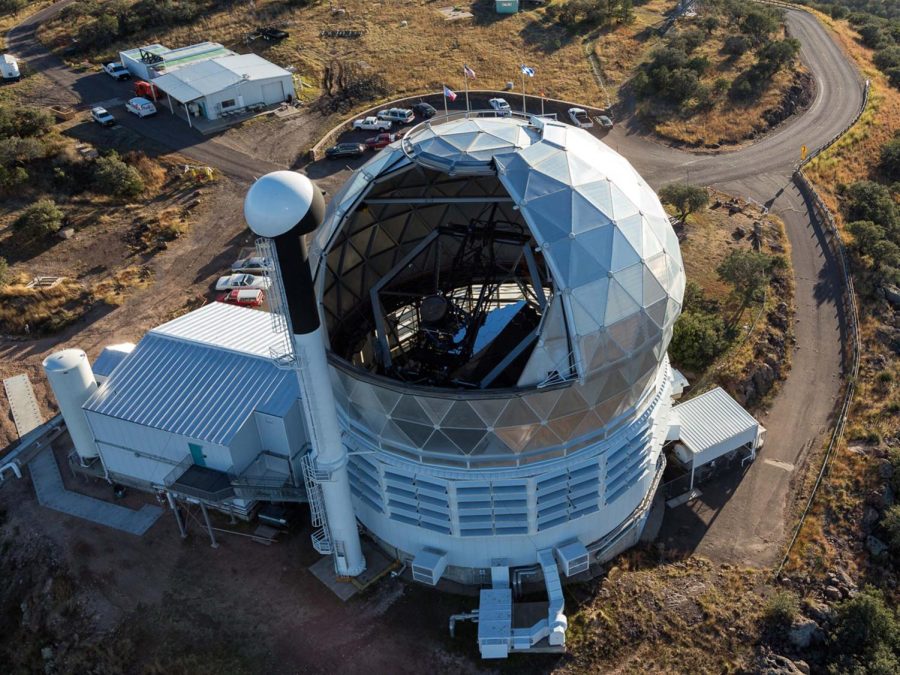UT-Austin researchers map over 200,000 new astronomical objects in project to understand universe’s expansion
February 21, 2023
UT researchers released a catalog with over 200,000 newly located astronomical objects as part of a project aiming to understand the expansion of the universe.
The Hobby-Eberly Telescope Dark Energy Experiment (HETDEX) uses the Hobby-Eberly Telescope at the University of Texas McDonald Observatory, one of the largest in the world.
Karl Gebhardt, astronomy professor and the project’s principal investigator, said the project aims to understand what drives the expansion of the universe. Gebhardt said they will measure dark energy, an unknown energy force three times stronger than anything else driving the universe’s expansion.
“We don’t really know what it is,” said Erin Mentuch Cooper, research scientist in the department of astronomy and the project’s data manager. “We see that it’s making our local universe accelerate in its expansion … We think of it as a pressure where it’s pushing things out.”
Gebhardt said his team looked 10 billion years into the past to measure the universe’s expansion rate, which they will then compare to the expansion rate today to understand the physics behind why the expansion occurs.
The team began collecting data in 2017 and currently has over half of the data they intend to collect, Gebhardt said. They particularly focus on lyman-alpha-emitting galaxies, Cooper said, which are distant galaxies that are incredibly bright, allowing the researchers to efficiently find them in the survey.
“Before we published this paper, there were maybe 1000 of (these distant galaxies) known,” Gebhardt said. “We have a catalog of 200,000, so we(‘ve) increase(d) the worldwide sample by a factor of 200.”
Cooper said the team hopes to ultimately find a million of these galaxies to create a 3D map of the sky and trace the expansion of the universe.
The breadth of the data collection creates a legacy potential for future research, Cooper said.
“There’s a massive amount of information in there and I expect it’s going to be producing a lot of interesting results for decades to come,” Cooper said.
While the main goal of the project is understanding what dark energy is, Gebhardt said the experiment could also discover a new type of particle or create new understandings of gravity and the Big Bang.
“We don’t know what the answer is,” Gebhardt said, “but whatever it is, it’s going to be profound.”












